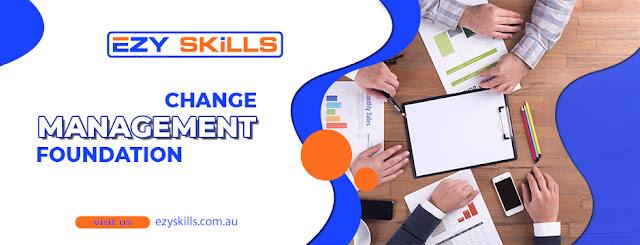What qualifications must a change practitioner possess? Change practitioners use diverse skill sets, from communication to strategic thinking, to accomplish their goals. We have compiled a list of what we consider to be the four most important traits of a change practitioner to assist you in better understanding the sort of person and the knowledge required to manage organizational change with the change management practitioner.
Which are the Top 4 Skills a Change Management Practitioner Should Possess?
1.Expert Coach
The creators of the change management plan are frequently viewed as change management practitioners. This designer's job description includes the encouragement, development, and support of line managers' capacity to coach people in their required roles in a particular change program.
They must have up-to-date knowledge of change management, a firm grasp of change methodologies, frameworks, and best practices, as well as a remarkable aptitude for applying essential change frameworks through various individual and group exercises, workshops, and other interventions.
2. Advanced Communication
The change practitioner's job requires direct communication with individuals at various levels of seniority working in various business activities both within and outside of the organization, thus, they should be brimming with excellent communication skills with the change management foundation. They know how to contextualize the needed information, make it relevant to a particular employee's work role, and meet the needs of various internal audiences.
Making the business case for investing in change management to key sponsors, especially senior executives, is another area where change management practitioners must concentrate their efforts. They must therefore be able to explain the value that successful change management can provide to an organization's competitive advantage and correspond with, influence, and do so.
3.Strategic Thinker
They must have the ability to see the future and consider how to develop strategic transformation strategies for it. They ought to be able to use change management approaches and modify them for use with their own unique project or change initiatives. Additionally, they must be able to access outside resources and carefully incorporate them into both their present and long-term objectives balanced with the change management foundation exam.
To ensure that the organization never falls behind, can move forward, can take advantage of any opportunity, and is continuously striving towards new and improved ways to tackle change management more effectively, long-term change management strategies must be positioned at the forefront of their minds.
4. Project Management
In accordance with the Prosci methodology, effective change practitioners should evaluate a change in terms of both the technical and human sides to guarantee that the change is accepted, supported, and implemented properly. To successfully provide a change management strategy, they must be well-versed in project management knowledge, methods, and tools.
Defining dependencies, results, responsible parties, and resource availability will be part of this. They will need to evaluate the results of the modification and what work still needs to be done, much like in project management.
Bottom Line
To manage the work of the change management practitioner, it is important to get complete information on the setup and arrangements of the change management foundation. You may connect with Ezyskills to deal with the management.







0 Comments